New photo - What & Where?
|
It's been a little quiet lately, so here's a small piece of a photo I just acquired. Any guesses to what it shows and where? The location will be obvious from the full image.
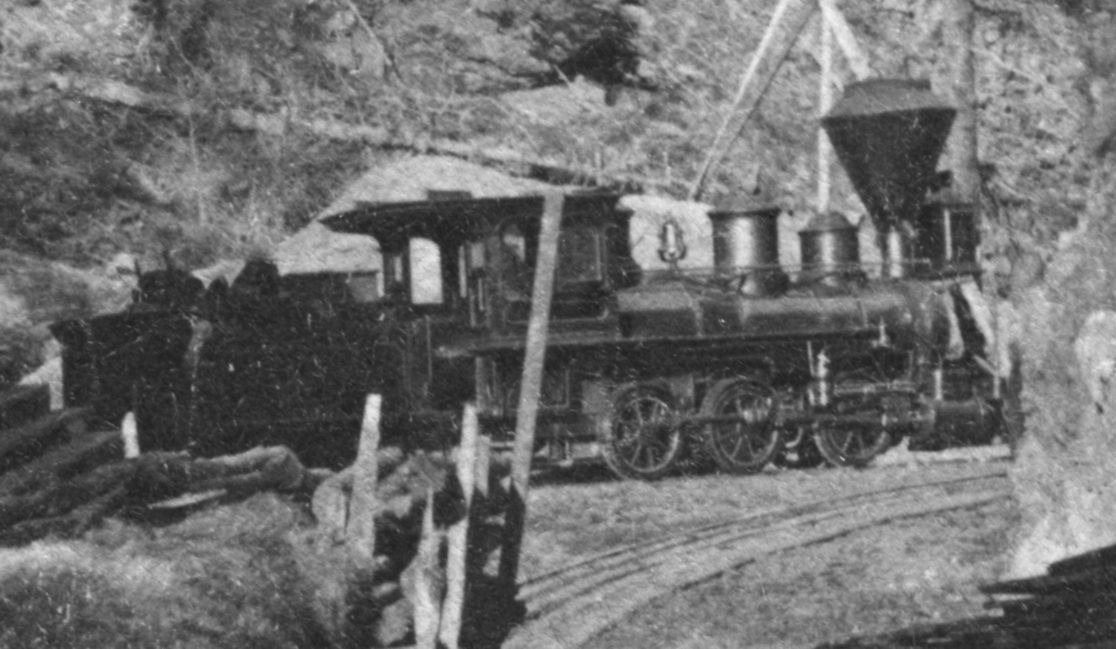
|
|
Looks to me to be the CC#2 Porter-Bell and taken at Beaver Brook siding.
UpSideDownC
in New Zealand |
|
I'm not positive of the engine number, but it is a Porter Bell 0-6-0 at Beaver Brook. I have other similar views from Beaver Brook and initially didn't find this view to be very different until I looked closer and saw the locomotive in the background.
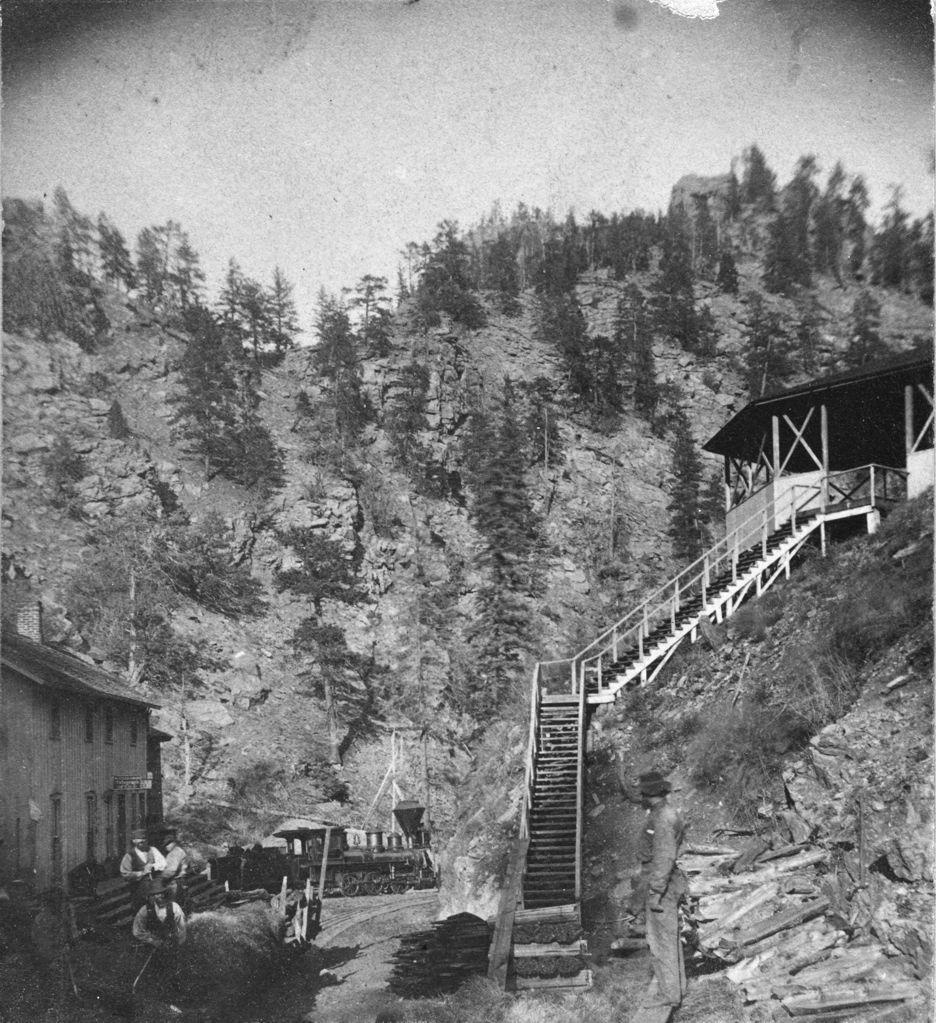
|
Re: New photo - What & Where?
|
In reply to this post by Todd Hackett
This looks like a nice place.
I am guessing this is just off of Clear Creek near Denver? |
|
My "guess" as to location is Beaver Brook. I've seen a published copy of this photo but I can't find it right now. I believe the locomotive is Porter-Bell #4 or #5 and this photo is circa 1874 -1878.
Lee Gustafson |
|
I just guessed at it being the #2, certainly no doubt as to the location, the planked siding and large rock with the telegraph pole angle change stood out like the proverbial. Since the published photos show the #1 and the #3 at Beaver Brook but neither photos show the high-staked flatcar behind on the spur. CC #1-2-3-6-7 were all very similar/same with the Bell on the wagontop section of the boiler.
I'm doubting it is the #4 since that built as a Saddle tank, rebuilt with a Tender, later become the #30. Both iterations carried the Bell behind the stack. The Pict. Sup. id's this as the #4 X-2508 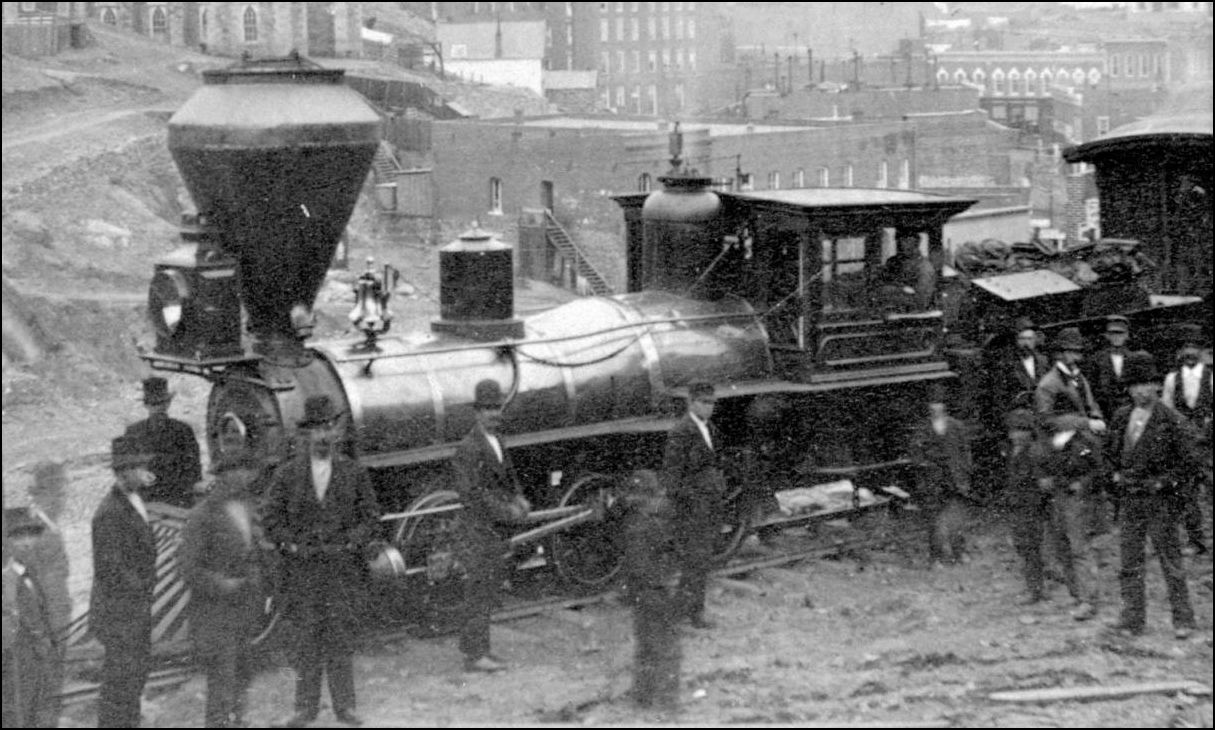 http://digital.denverlibrary.org/cdm/fullbrowser/collection/p15330coll22/id/78893/rv/singleitem/rec/73 CHS.J3908 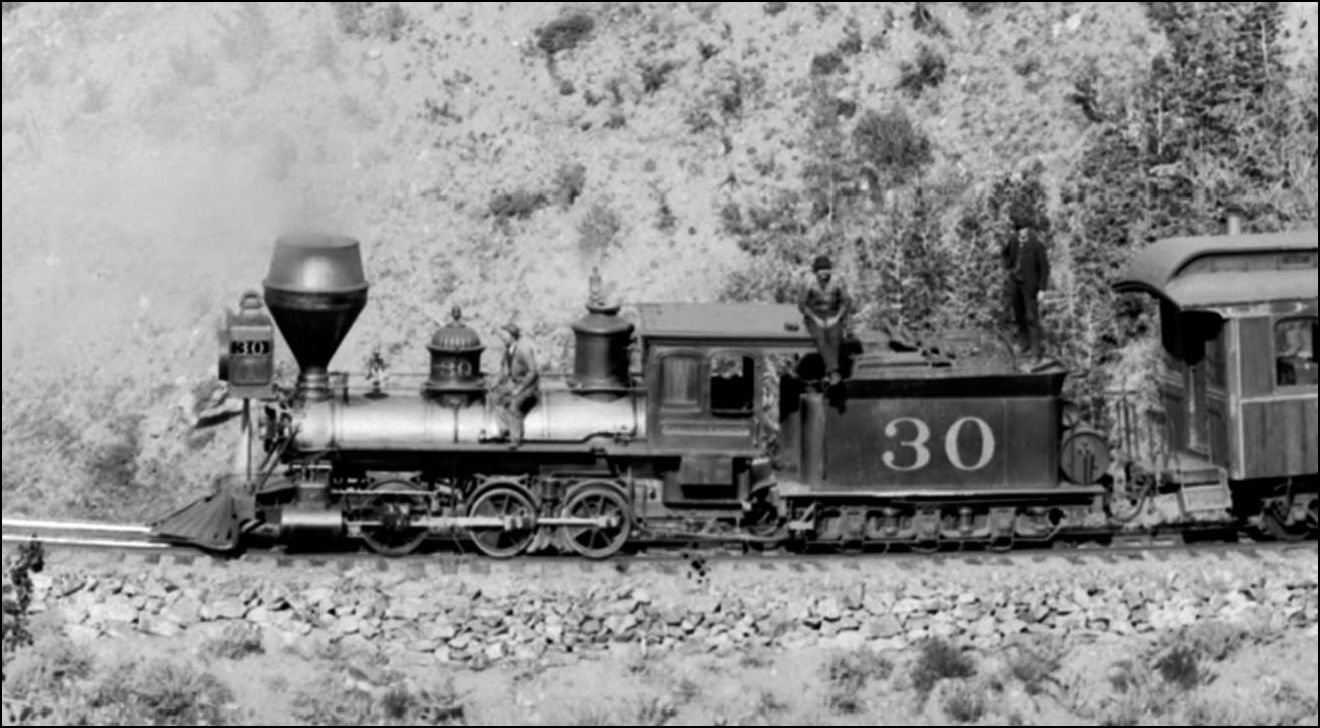 http://digital.denverlibrary.org/cdm/fullbrowser/collection/p15330coll21/id/12602/rv/singleitem/rec/17 Digerness captioned this as the #6 in Mineral Belt V-III C-56 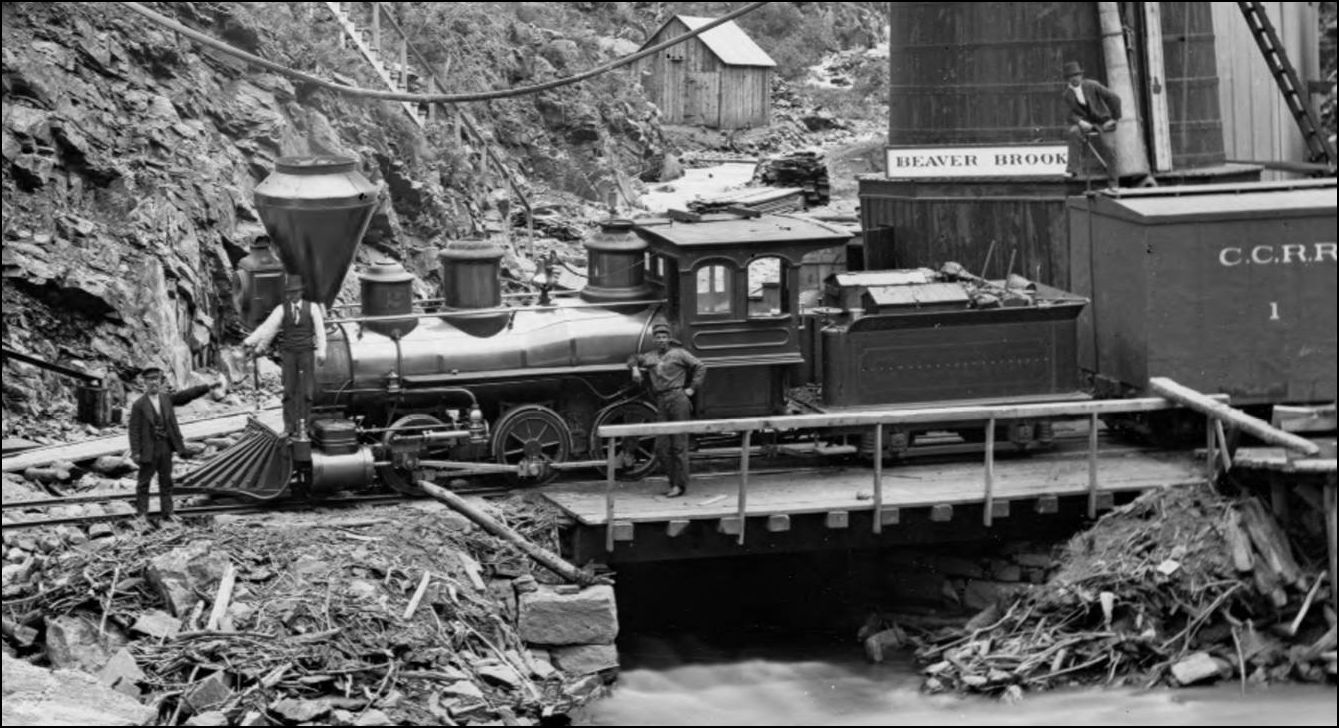 http://digital.denverlibrary.org/cdm/fullbrowser/collection/p15330coll22/id/75623/rv/singleitem/rec/23 Do let us know where you've seen Todd's picture published, I can't find it either.
UpSideDownC
in New Zealand |
|
What exactly is a "wagon top" boiler, as opposed to other horizontal boilers ?
"Duty above all else except Honor"
|
|
Look at the photo of the loco with the larger section of the boiler next to the cab and sloped section in front of it in comparison to the straight boilers. The is a wagon top.
Bill Uffelman
|
|
In reply to this post by South Park
Sth'Park,
here's a little yabbering on your subject. https://books.google.co.nz/books?id=1A4iiGAz628C&lpg=PA95&ots=pt6sArw-Os&dq=%22wagon%20top%22%20boiler&pg=PA95#v=onepage&q=%22wagon%20top%22%20boiler&f=false
UpSideDownC
in New Zealand |
|
In reply to this post by Chris Walker
Chris, Todd & All,
After several days of searching I could not find a published version of Todd's original photo. I will continue to look. As I looked at the original photo I agree with Chris the loco in question is more likely CC #1-2-3-6-7 and not #4-5. Based on bell and dome configuration. Lee Gustafson |
|
C ~ Thanks for the link.
I guess I should rephrase the question .... what is the origin or meaning of the term "wagon top" ?
"Duty above all else except Honor"
|
|
Hmmm let me see, "However, in 1849 or 1850 the celebrated Wagon-Top boiler was introduced...."
.... echoes of the Emigrant Trail, Covered Wagons, Prairie Schooner, Conestoga maybe?
UpSideDownC
in New Zealand |
|
I've seen a lot of wagons. Seen a lot of wagon tops. I am failing
to see any visual resemblance and being the nitpicker for terminology that I am, failing to connect the dots on how that design got its name. "1849-50" is not hard enough evidence for this former law enforcement guy. Kinda like charging someone with a crime because they happened to drive through the neighborhood at the time, or just look suspicious ! 
"Duty above all else except Honor"
|
|
Take a look at the conestoga wagon and notice that on some models the bows on the ends were higher than in the middle. When covered with sailcloth or denim, these had a pronounced "U" shape.
The wagon top was a slang term referring to one end of the boiler raising up like one end of the top of a conestoga wagon. This design allowed, in the early boilers, a greater steaming volume and thus more power than the straight or "Shotgun" boiler (not an over and under or side by side) that was the contemporary norm. As boiler technology went on, it was found that the larger the boiler barrel (back to gun terminology), the more the room for flues and tubes and thus a greater heating surface. Remember, early on the size and pressure were limited by the strength of the iron used to make the boiler barrel. The Wagon Top was especially well suited to this purpose. When steel came along, and it was much stronger than iron and less prone to stress cracks, the sizes of the boilers on wheels increased, with the majority being shotgun or modified shotgun boilers, until the boiler became a really Big Boy (couldn't resist the pun). And Yes, I like ALCo's. Rick |
|
Thanks Rick,
Being an aesthetically (visually) oriented type, I still think that's a stretch, but for lack of other explanations ....... If the rise occurred at the cab front, I could see the connection, but the rise or hump at a 1/3-2/3 location ?
"Duty above all else except Honor"
|
Re: New photo - What & Where?
|
The earlier Bogies had a noticeable wagon top,while the later ones(like Breckenridge) did too,but barely noticeable.Ask J.C.Zuluoga.
|
|
Yes, and according to Mason's own spec's, the 57 (C&S No 1) had the largest boiler that the DSP&P had built for the 2-6-6T's. Unfortunately, it was a one-of. It had more tubes, thus a larger heating surface than its predecessors.
Rick |
|
In reply to this post by Todd Hackett
Ah memories of Beaver Brook.
Around 1974 a friend and I parked on the exit off of I-70 and hiked the trail down to Beaver Brook. It was a wonderful hike for a couple of Colorado rail fans and the high point was a 50' piece of 3' gauge snap track in the middle of Clear Creek. After all those years... Thanks for tickling the memory buds. Skip Egdorf
Skip Egdorf
|
«
Return to C&Sng Discussion Forum
|
1 view|%1 views
| Free forum by Nabble | Edit this page |

